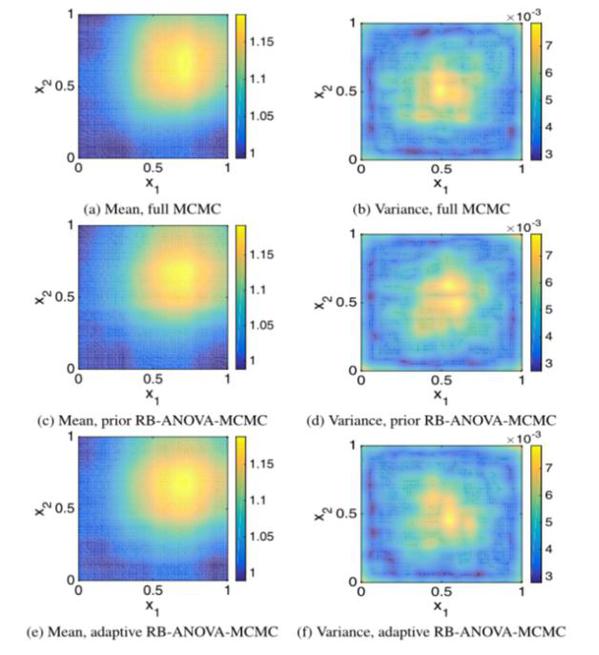SIST Assistant Professor Liao Qifeng’s group recently proposed a novel ANOVA based model reduction method for high-dimensional Bayesian inferences, which was published in Journal of Computational Physics with the title of “An adaptive reduced basis ANOVA method for high-dimensional Bayesian inverse problems.” This work provides an efficient method for the challenging high-dimensional Bayesian inverse problems.
In Bayesian inverse problems sampling the posterior distribution is often a challenging task when the underlying models are computationally intensive. To this end, surrogates or reduced models are often used to accelerate the computation. However, in many practical problems, the parameter of interest can be of high dimensionality, which renders standard model reduction techniques infeasible. This work presents an approach that employs the ANOVA decomposition method to reduce the model with respect to the unknown parameters, and the reduced basis method to reduce the model with respect to the physical parameters. Moreover, this work provides an adaptive scheme within the MCMC iterations, to perform the ANOVA decomposition with respect to the posterior distribution. With numerical examples, this work demonstrates that the proposed model reduction method can significantly reduce the computational cost of Bayesian inverse problems (see Figure), without sacrificing much accuracy.
This work was carried out in collaboration with the University of Liverpool. It was financially supported by Natural Science Foundation of China.
Read more at:https://www.sciencedirect.com/science/article/pii/S002199911930467X





 沪公网安备 31011502006855号
沪公网安备 31011502006855号


